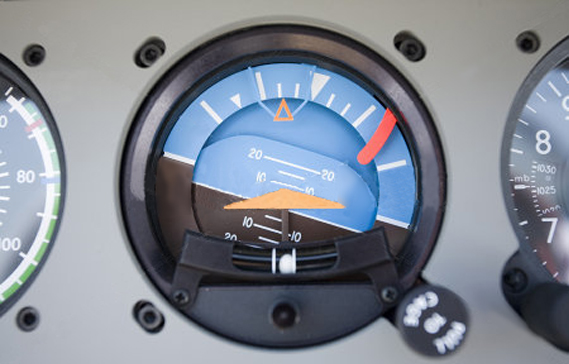Instrument Rating – Aeroplanes (IR)
Both Private and Commercial Pilot Licenses are only valid for Visual Flight Rules (VFR).
In case of bad visibility or even overseas flying without visual landmarks that can be spotted, a Private or Commercial Pilot License will not be sufficient, therefore, the need for an Instrument Flight Rating (IR) becomes necessary. This rating will allow the pilot to fly in bad or low visual conditions, with sole reference to his cockpit panel instruments. The pilot will be able to safely maneuver his aircraft and follow accurate navigation itineraries through clouds, haze, fog, smog, mist and other low visibility conditions, without ever experiencing the necessity to see the ground.

General requirements for an Instrument Rating:
- Age – An applicant shall be a minimum of eighteen years of age.
- Medical Fitness – An applicant shall hold a valid Class 1 or Class 2 with the hearing requirements for the issue of a Class 1 Aviation Medical Certificate.
- Certificates – An applicant shall hold at least a current Private Pilot License.
Instrument Rating curriculum:
- Knowledge – An applicant will complete a course that includes a minimum of 40 hours instrument rating ground school.
- Experience – An applicant will complete a minimum of 40 hours of instrument time.
Instrument Ground Stages
STAGE I
| STAGE OBJECTIVE |
| During this stage, the student will review Instrument systems, Instrument Navigation, airports, airspace, flight information, departure, en route, arrival, and approach procedures. In addition, the student will gain a greater understanding of what it means to fly by reference to flight instruments. |
STAGE II
| STAGE OBJECTIVE |
| During this stage, the student will learn the specific elements of VOR, NDB, LOC, ILS and GPS Instrument Approach procedures and IFR Flight Planning. They will also expand their knowledge of meteorology, weather forecasting and weather interpretation. |
STAGE III
| STAGE OBJECTIVE |
| During this stage, the student will review the elements of IFR flight covered in Stage I and II. They will also gain knowledge in the areas of IFR Emergencies, Decision Making and Federal Aviation Regulations. |
Instrument Flight Stages
STAGE I
| STAGE OBJECTIVE |
| This stage provides the student with an introduction to basic attitude instrument flight while emphasizing the primary and supporting instrument scan to include instrument cross-check, interpretation, and aircraft control. Basic attitude instrument flight will be conducted with both a fully functioning panel of flight instruments and simulated instrument failure. Basic instrument navigation skills will be presented including the use of VOR, NDB and/or GPS, and DME navigation aids. |
STAGE II
| STAGE OBJECTIVE |
| This stage builds upon the skills developed in the first stage. Instrument approach procedures and IFR cross-countries are introduced and practiced. |
Instrument Rating – Course Break-up:
|
Type of Training (Ground)
|
Hours
|
|---|---|
|
Flight Briefings (Pre-post briefings)
|
20
|
|
Ground Courses
|
80
|
|
Total Ground
|
100
|
|
Type of Training (Flight)
|
Hours
|
|---|---|
|
Aircraft – Dual
|
40
|
|
Basic Aviation Training Device
|
10
|
|
Total Flight
|
50
|
Training – Tecnam 2010
|
Fees Break-up
|
Hours
|
Price/Hour(USD)
|
Total(USD)
|
|---|---|---|---|
|
Flight Training Material
|
-
|
-
|
500.00
|
|
Annual Beirut Intl airport security gate pass
|
-
|
-
|
100.00
|
|
*Ground Courses
|
100
|
-
|
5.000.00
|
|
Aircraft – Dual
|
20
|
455
|
9.100.00
|
|
Basic Aviation Training Device
|
20.0
|
150
|
3.000.00
|
|
Flight Test
|
1
|
300
|
300.00
|
|
Total Fees
|
18.000
|
||
Note: An applicant shall complete a minimum of 50 hours of cross-country flight as pilot-in-command in aeroplanes in order to meet the requirements of LAR s401.41 to be eligible to take the instrument rating flight test.
*The Ground Training is based on the student attending the school, at the scheduled time. Make up lessons for any missed ground training will be held on a one-on-one basis and at an additional ground instruction rate.
Additional Costs
|
Fees Break-up
|
Price/Hour (USD)
|
|---|---|
|
Hourly rate for additional flight instruction in Tecnam 2010
|
455
|
|
Hourly rate for additional ground instruction (one-on-one)
|
100
|
|
Hourly rate for additional pre-post flight briefings
|
25
|
- The hours provided for the Tuition above are the minimum course requirement. According to the overall performance and progress of the pilot additional instruction may be required to meet the proficiency standards required to satisfactorily complete the Instrument Rating Program. The number of additional hours will be determined by the Flight Instructor.
- The Fees may be adjusted without prior notice by Beirut Wings management in the event of unforeseen cost escalation, including but not limited to, rapidly rising fuel costs or increased aircraft flying costs.
- Flight Training Material cost is based on mandatory items needed to complete the course.
